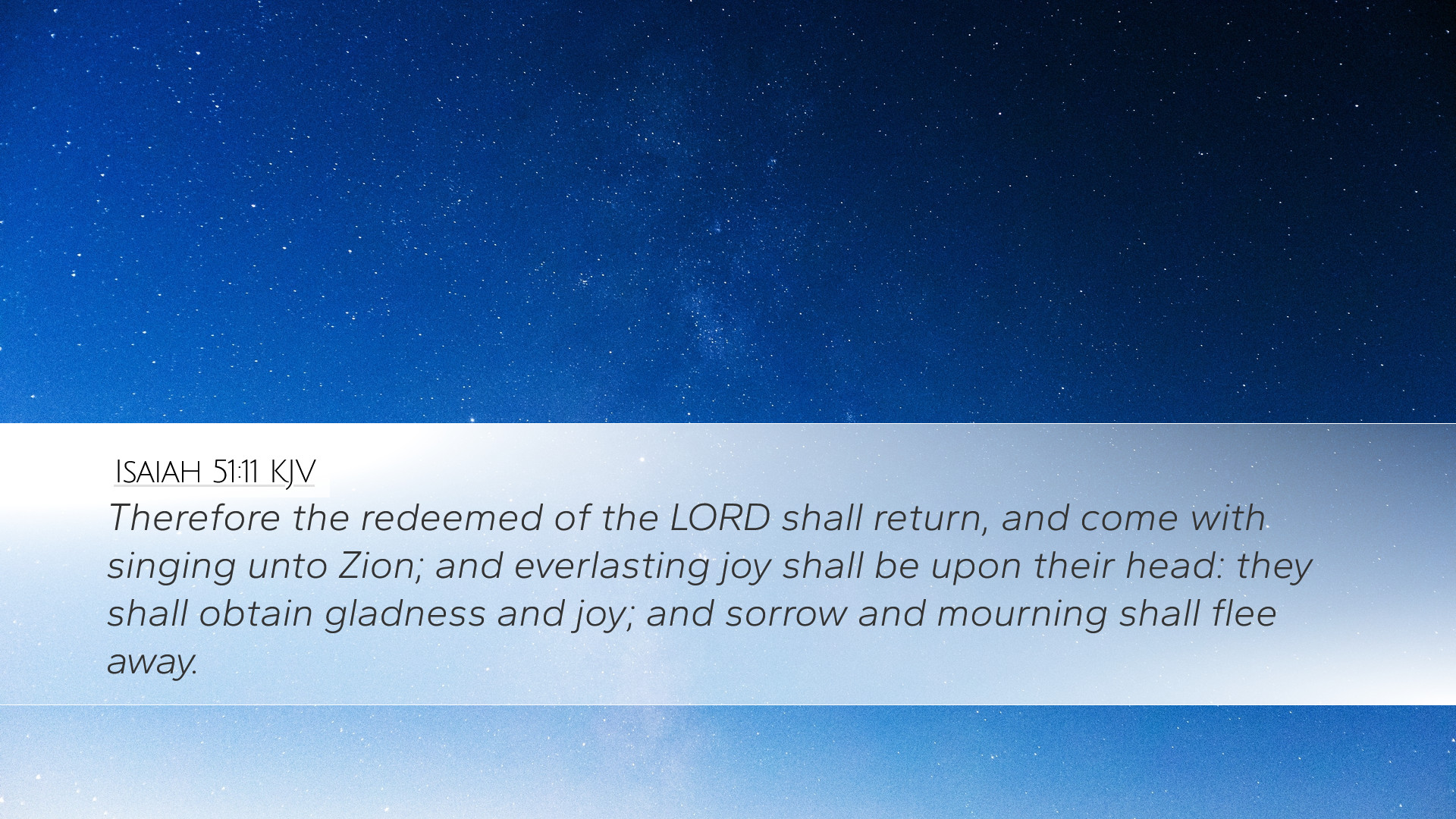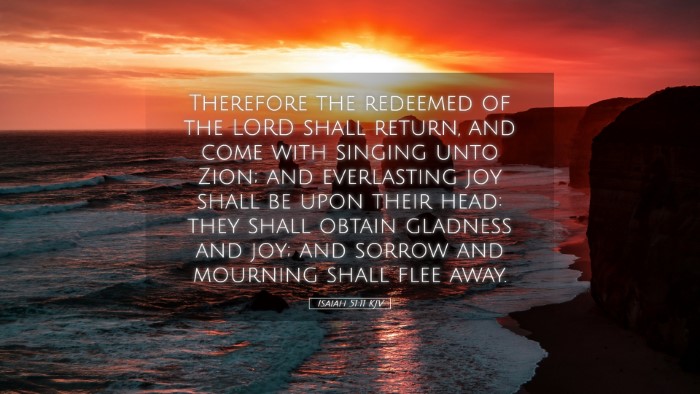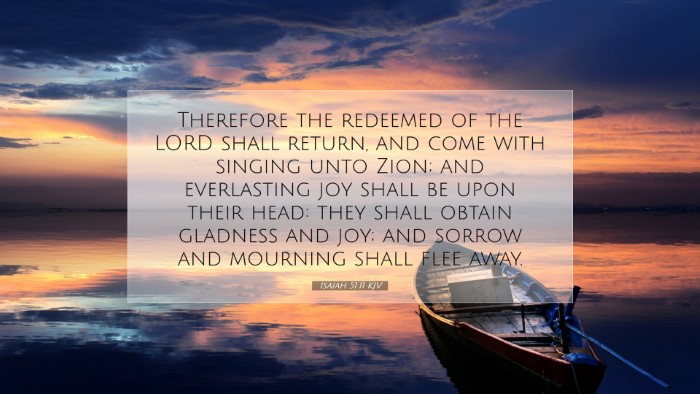Commentary on Isaiah 51:11
Isaiah 51:11 states:
"Therefore the redeemed of the Lord shall return, and come with singing unto Zion; and everlasting joy shall be upon their head: they shall obtain gladness and joy; and sorrow and mourning shall flee away."
Introduction
This verse heralds a message of hope and restoration for God's people. Drawing from the depths of despair depicted earlier in the book of Isaiah, this promise serves as a turning point, reminding the faithful of God's unyielding commitment to redeem them. The insights from various public domain commentaries enrich the understanding of this verse, delineating themes of redemption, joy, and the ultimate triumph over sorrow.
Contextual Background
In the broader narrative of Isaiah, the prophet addresses a people in the midst of suffering and exile. The Israelites faced the consequences of their sin, yet God, through Isaiah, offers a prophetic promise of deliverance. This verse serves as a climactic reminder that redemption is not only possible but imminent for those who trust in the Lord.
Analysis of Key Themes
1. The Redeemed
Matthew Henry notes that the term “redeemed” highlights God’s saving work, indicating a rescued people, bought back from bondage. The restoration promised is not simply a physical return to Zion but denotes a spiritual renewal, embodying a profound change of heart and circumstance.
2. A Joyful Return
The imagery of returning "with singing" encapsulates a powerful emotional response to God’s faithfulness. Albert Barnes elaborates that this singing is not merely a casual act but a celebration of divine deliverance, characterized by spontaneous joy. This suggests that true worship is not just an internal disposition but is expressed through exuberant praise.
3. Everlasting Joy
Adam Clarke points out that “everlasting joy” signifies a permanent state of contentment bestowed by God, contrasting sharply with the fleeting emotions often experienced in human life. The permanence of joy promises that for the redeemed, their struggles will be supplanted by an everlasting state of rejoicing. Clarke emphasizes that this joy is predicated on a relationship with God and is a profound aspect of redemption.
Contrast Between Joy and Sorrow
The declaration that “sorrow and mourning shall flee away” evokes a powerful image of liberation from grief. According to Henry, this promise conveys that the obstacles of despair and sorrow are no longer barriers for the redeemed. Such a promise affirms that God’s interventions in human history are capable of transforming the bitterest sorrow into profound joy.
- Spiritual Significance: The verse reflects significant theological themes regarding God's promises and their fulfillment.
- Emotional Transformation: It illustrates the emotional and spiritual transformation that follows redemption.
- Hopeful Assurance: The promise serves as a reminder that joy will ultimately triumph over sorrow in the life of the believer.
Pastoral Application
For pastors and leaders within the church, this verse serves as a foundational text that speaks into the heart of pastoral care. The themes of redemption and joy can be pivotal in counseling situations, where individuals wrestling with sorrow and loss require a reminder of God’s power to restore. Furthermore, this passage inspires preachers to focus on the transformative nature of God’s grace and the hope inherent in the Gospel.
Conclusion
Isaiah 51:11 encapsulates a profound promise of God's faithfulness to redeem and restore His people. The insights drawn from public domain commentaries provide a robust framework for understanding the depth of joy depicted within this verse. For the faithful, the promise of everlasting joy serves not only as a comfort but also as a motivating force that encourages them to live in the light of their redeemed status. Whether one is a theologian, a pastor, or a student of the Scriptures, the implications of this verse are profound and deeply applicable to modern faith life.


